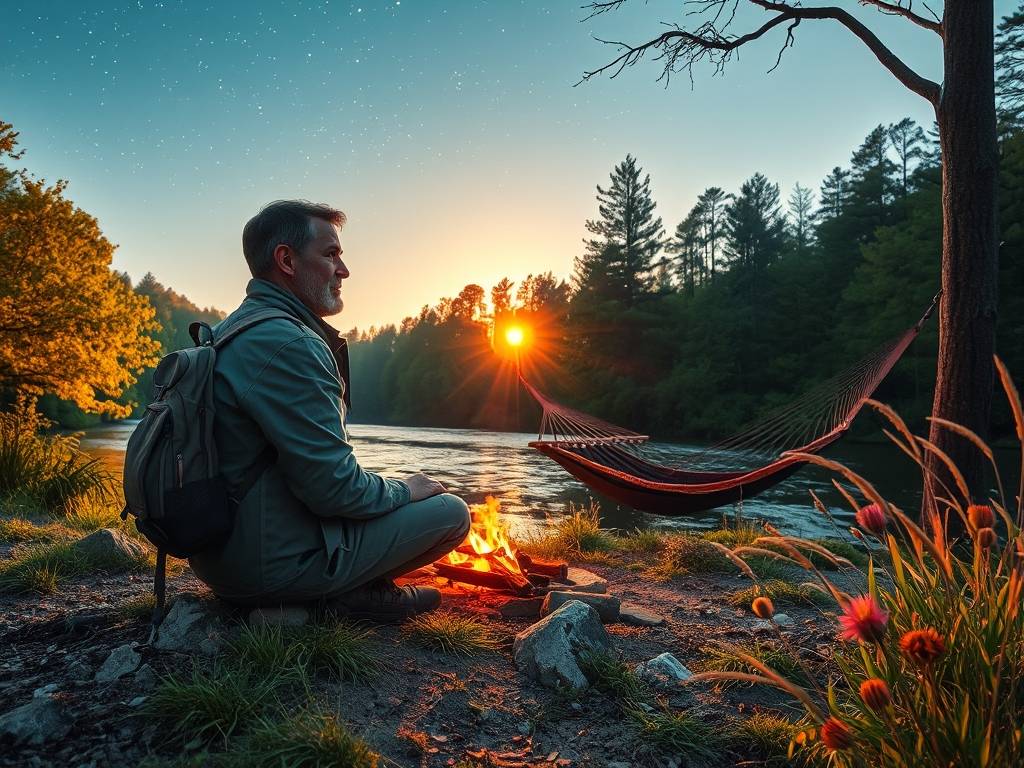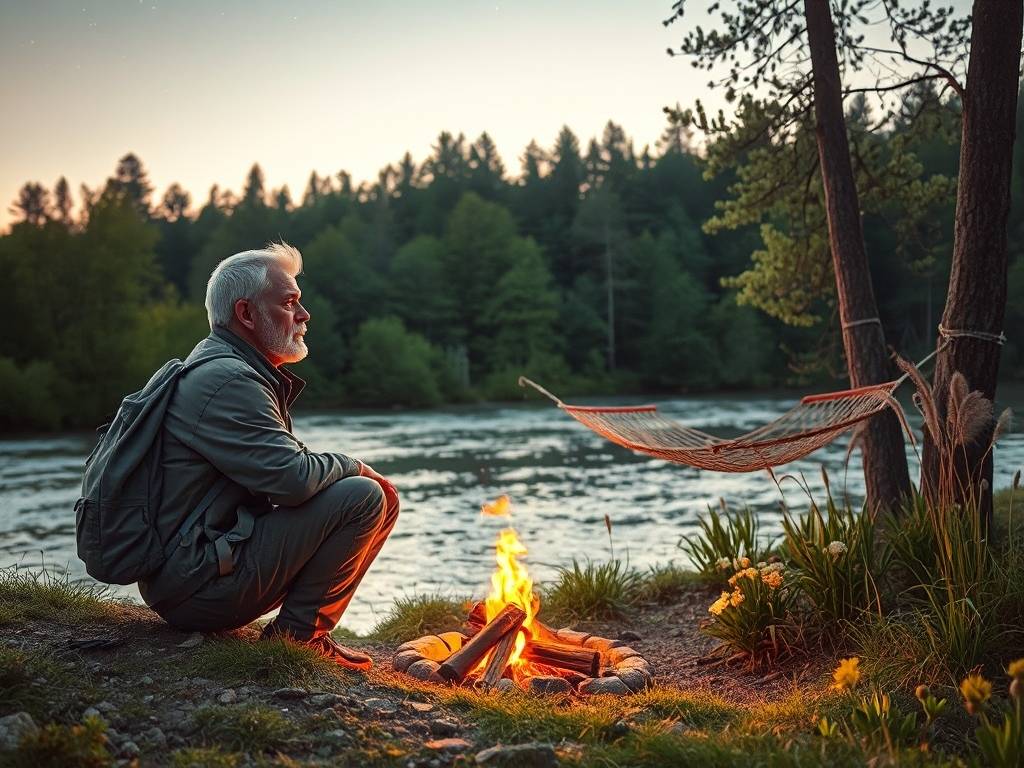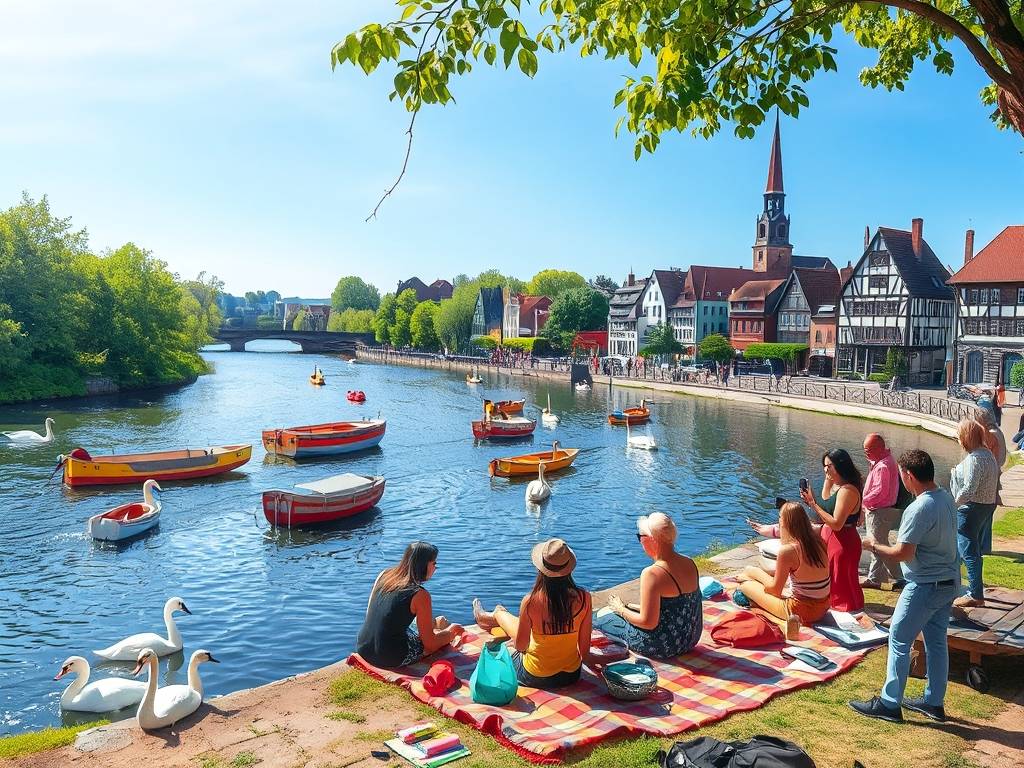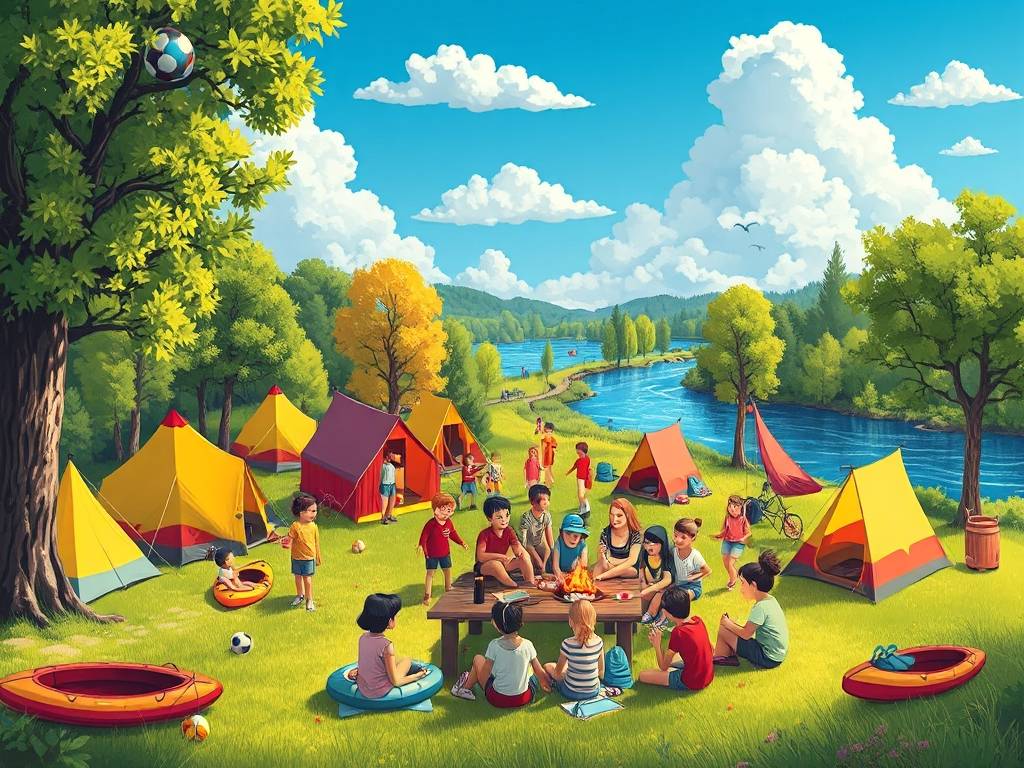Global Travel Information
Elbe River Solo Camps: Connect with Nature Alone
The Solitary Pulse: Finding Myself Along the Banks of the Elbe
There is a particular quality of silence that exists only by a river at dusk. It is not a true silence, of course, but rather an absence of the human-made. The distant, constant rush of water over stone becomes the new baseline, a white noise woven by nature itself. Upon this canvas, other sounds are painted: the rustle of a unseen creature in the reeds, the plaintive call of a waterfowl settling for the night, the whisper of wind through the willows. It is in this symphony of the wild that I find myself most truly, sitting alone at my solo campsite on the banks of the Elbe.
The Elbe River, flowing over a thousand kilometers from the Krkonoše Mountains in the Czech Republic to the North Sea in Germany, carves a path through the heart of Europe. Its banks are a tapestry of history, castles, and vineyards. But for the solo camper, it offers something more profound: a corridor into solitude and self-reliance. My journey was not one of conquering distance, but of embracing stillness. I chose a stretch in the Saxon Switzerland region, where the river meanders through a landscape of dramatic sandstone cliffs and deep forests, a place where the modern world feels like a faint rumor.

The act of solo camping begins long before the first peg is hammered into the earth. It starts with a meticulous, almost ritualistic, packing. Every item’s weight, utility, and necessity is questioned. There is no one to borrow a lighter from, no one to share the load of a forgotten tent pole. This self-containment is the first lesson of solitude: you are your own support system. The backpack becomes a shell, a mobile home containing everything needed for survival and, if done right, for comfort. Arriving at a designated Wasserwanderrastplatz—a water trekker’s rest stop—the real work begins. Selecting the perfect spot is an intuitive art. It must be flat, high enough to avoid any nocturnal rise of the river, and positioned to catch the morning sun while offering shelter from the wind. As I unroll the tent and assemble the poles, the process is meditative. Each snap of the fabric, each tug of the guylines, is a step away from my other life and a step into this temporary, personal domain.

With the tent pitched and the sleeping bag unfurled, the world contracts to the radius of the fire ring. The initial, almost primal anxiety of being completely alone begins to ebb, replaced by a slow-dawning awareness. There is no conversation to maintain, no social mask to wear. The mind, so often a cacophony of to-do lists and digital chatter, is forced to change its tune. At first, it rebels, spinning in frantic circles. But the river is patient. Its endless flow is a lesson in letting go. You watch a leaf caught in an eddy, spinning until it is finally released downstream, and you feel a similar release within yourself.
Days on the river are structured not by clocks, but by light and hunger. A morning is spent simply watching the mist curl off the water’s surface like ghostly serpents, dissipating as the sun crests the cliffs. A hike along the Malerweg, the "Painter's Way," is a solitary communion with nature’s grandeur. The famous Bastei Bridge, with its throngs of tourists, feels like another planet. I prefer the unnamed paths, the quiet clearings where the only audience to the stunning view is me. Lunch is a simple affair—bread, cheese, an apple—each flavor amplified by the crisp air and the physical effort of the walk.
This deep immersion in nature sharpens the senses to a pre-industrial acuity. You begin to read the landscape like a book. The scat of a deer near the camp indicates a nightly visitor. The specific shrill of a bird becomes an alarm for a circling hawk. The changing texture of the wind on your skin hints at a coming shift in weather. You are no longer just an observer of nature; you are a participant, however small and transient. This reconnection is the great gift of solo camping. In our insulated lives, we have forgotten how to listen to the world. Here, by the Elbe, you remember. You feel the chill of the ground seep into your bones at night and the warmth of the sun bake it out in the morning. You are animal, elemental.
Of course, solitude is not always a serene, romantic affair. There are moments of vulnerability that pierce the idyllic bubble. The first night, the sound of a snapping twig just beyond the firelight can freeze the blood. The mind, a master of catastrophic fiction, conjures boars, or worse. But you learn to sit with that fear, to breathe through it, to logically assess the tiny, harmless probabilities. You learn the difference between the sounds of danger and the sounds of a living forest simply going about its business. Overcoming these small, internal panics builds a quiet resilience that is far more valuable than any physical strength. You prove to yourself that you can be afraid and still be safe, that you can be alone and still be whole.
The river itself is the constant companion. Its mood shifts with the sky. On bright days, it is a ribbon of molten silver, dancing and sparkling. Under clouds, it turns slate-grey, somber and powerful. I spent hours simply sitting on a rock, my feet in the cold, clear current, watching the water flow past. It became a metaphor for time, for thoughts, for life itself. Everything passes. The anxieties that seemed so monumental back in the city were like leaves on this river—they appeared, swirled for a moment, and were carried away. The river does not cling; it simply flows. To sit beside it is to learn the art of non-attachment.
As my solo journey drew to a close, the process of packing felt different. The gear was dirtier, smelling of woodsmoke and damp earth. But I felt lighter. The silence I had initially feared had become a comfortable cloak. The self I had brought to the riverbank—fraught with the static of modern existence—had been quieted, tuned to a different frequency. I had not found any grand answers to life’s questions, but I had remembered how to hear them asked by the wind and the water.
Pushing my kayak away from the bank for the final leg, I took one last look at my campsite. It was already returning to wilderness, the flattened grass beginning to spring back, the fire ring just a circle of cold ash. There was a rightness to this. We are meant to pass through such places lightly, leaving no trace but the imprint of the experience on our own souls. The Elbe had given me what I sought: not an escape from life, but a clearer lens through which to see it. I was going back to the world of noise and people, but I carried the river’s solitary pulse within me, a steady, flowing reminder of the peace that waits on a quiet bank, under a wide sky, alone.
相关文章
- Elbe River Friend Camps: Have Fun with Friends
- Elbe River Group Tours: Travel with a Community
- Elbe River Private Tours: Custom Experiences Just for You
- Elbe River Luxury Tours: Premium Adventures Along the River
- Elbe River Budget Tours: Affordable Ways to Explore
- Elbe River Day Tours: Short Trips Near the Water
- Elbe River Week-Long Tours: Extended Explorations
- Elbe River Month-Long Tours: Deep Dives into the Area
- Elbe River River Cruises: Multi-Day Trips on the Water
- Elbe River Dinner Cruises: Enjoy a Meal with Views
发表评论
评论列表
- 这篇文章还没有收到评论,赶紧来抢沙发吧~


